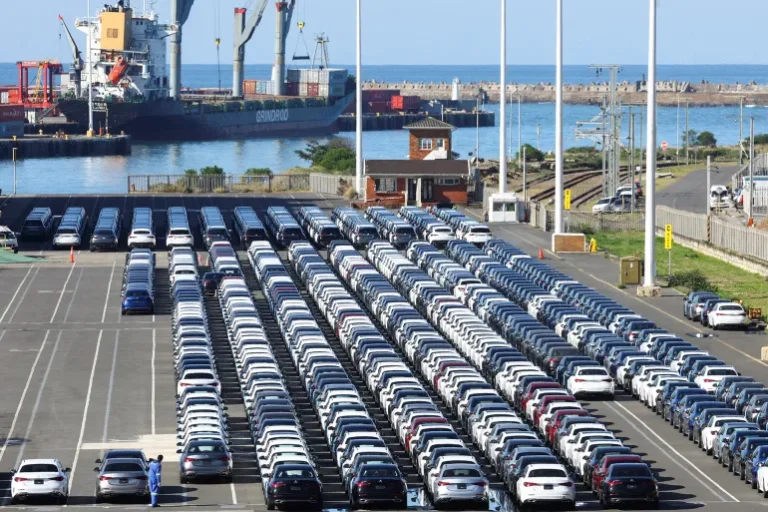South Africa Not Planning Immediate Response to Trump’s Tariffs
Edition : Widad wahbi
The South African government announced it has no immediate plans to retaliate against the tariffs imposed by U.S. President Donald Trump at the end of last week. Instead, officials emphasized their intention to pursue dialogue and negotiations in hopes of reaching agreements or securing exemptions from the newly applied trade quotas.
President Trump’s decision to implement a 31% tariff on all South African imports was made public on Wednesday, as part of a broader package of trade measures targeting dozens of countries worldwide. In remarks to the press, Trade Minister Parks Tau cautioned against hasty countermeasures, stating that any reciprocal action without fully understanding the basis of the U.S. decision would be counterproductive. He noted that the average tariff South Africa imposes on American goods is around 7.6%.
Foreign Minister Ronald Lamola described the new tariffs as undermining the economic advantages African countries have long received under the African Growth and Opportunity Act (AGOA), a key U.S. initiative intended to foster trade with sub-Saharan Africa.
The United States is South Africa’s second-largest trading partner after China. Bilateral trade reached $20.5 billion in 2024, including $5.8 billion in U.S. exports to Johannesburg and $14.7 billion in South African exports to the United States.
Trade and foreign affairs officials jointly acknowledged the need for South Africa to accelerate efforts to diversify its export markets, with a particular focus on Asia and the Middle East. At the same time, the government pledged to provide support to sectors expected to be most affected by the tariffs, including automotive manufacturing, processed food industries, mining, and agriculture.
According to government estimates, the impact of the tariffs on economic growth is expected to be minimal, with a projected decline of less than 0.1% in GDP growth for the year.
South Africa had previously expressed interest in negotiating a bilateral trade agreement with the Trump administration. However, diplomatic tensions have escalated since Trump returned to power. The expulsion of South Africa’s ambassador to Washington, Ibrahim Rasool, at the end of last month marked a significant breakdown in diplomatic relations. The ambassador was accused by U.S. officials of harboring anti-American views and of being critical of President Trump.
While Pretoria had initially hoped to strengthen ties with Washington through expanded trade agreements, repeated verbal attacks from the White House and the imposition of punitive tariffs now cast serious doubt on the possibility of future rapprochement.
-

Caribbean Turns to Africa for Trade Stability Amid Western Economic Uncertainty
Edited By: Tendai Zola The Caribbean region is increasingly turning toward Africa to diversify its trade relationships and reduce dependence on... Economy -

South African President Fosters Stronger National Provincial Partnership in Northern Cape
Edited by: Fatima BabadinThe recent meeting led by President Cyril Ramaphosa in the Northern Cape marked a renewed effort to... South Africa -

South Africa’s Million Children Without Identity Papers Face Lifelong Barriers
Edited by: Fatima BabadinMore than one million children across South Africa find themselves trapped in uncertainty, lacking official birth certificates.... Society -

BHP Group exits Tanzanian nickel project amid global market uncertainty
Edited By: Safae FathiBHP Group has fully withdrawn from the Kabanga nickel project in northwestern Tanzania, selling its 17% equity... Economy -

Bank of Ghana defers immediate policy action amid signs of economic stabilization
Edited By: Safae FathiGhana’s central bank announced on Friday that it had decided to defer any immediate policy action during... Economy -

Zambia and Brazil Advance Agricultural Cooperation to Boost Lobito Corridor
Edited by: Fatima BabadinZambia is advancing its strategic partnership with Brazil in a renewed effort to accelerate agricultural development along... Regional and international cooperation

 Follow the latest news on WhatsApp
Follow the latest news on WhatsApp  Follow the latest news on Telegram
Follow the latest news on Telegram  Follow the latest news on Google News
Follow the latest news on Google News  Follow the latest news on Nabd
Follow the latest news on Nabd 

















